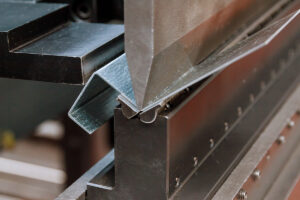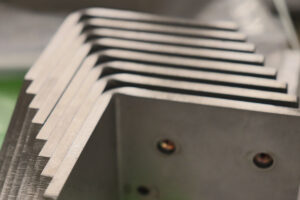
What is Equipment Contract Manufacturing:
PEKO Precision Products, Inc in Rochester, NY is exactly this kind of contract manufacturer, as I have written about before:
- Why Contract Manufacturing for low volumes makes sense
- Ways a Program Manager Helps in CM
- Turnkey Assemblies – Step up From Component Manufacturing
- Can All Precision Machine Shops do Assembly and System Integration?
Things to look for in a great CM:
The following list is a great start when looking for a contract manufacturer for your product. In many cases, the requirements will vary. But many of these points still apply across an array of industries and can be a good jump-off point on your quest for the right CM.
1. Vertical Integration
Many contract manufacturers create an atmosphere of One-Stop Shopping. By one-stop shopping, this means that the CM can provide or manage all the services it takes to create your final product. This is a very attractive offer and absolutely should be a mainstay of any good Contract Manufacturer.
The difference is that some CMs are prone to outsourcing large portions of the product they intend to finally build. A good ratio is that the CM should be able to produce approximately 50% of value-added within the product on its own. This allows for the other 50% to consist of raw material, purchased COTS items, and a small amount of special process outsourcing.
A good contract manufacturer might accomplish this by having CNC Machining, Sheet Metal, Engineering, Welding, Mechanical Assembly, and finishing right at their facility. Be wary of “contract assembly” houses that simply do the assembly work and outsource the entire manufacturing of the BOM. These types of manufacturers may have a good handle on their supply base but are left vulnerable to an array of quality and delivery complications within their supply chain.
2. Dedicated Manufacturing Team
Beyond having the right capabilities, it’s important that your contract manufacturer is capable of putting together a dedicated team of experts that will understand your product, your customers, and your individual requirements. By assembling a team and defining the Points of Contact, the lines of communication are opened for partnership.
A good manufacturing team will have such members as Program Manager, Production Planner, Manufacturing Engineer, and Quality Engineer. These folks all play an instrumental role. Whether it’s guiding parts through the machine shop, optimizing the assembly area, or even understanding critical requirements and regulations for the customer’s product, the team should be able to work together toward a common goal.
3. Industry Expertise
Many different industries have distinct nuances that must be met head-on and managed throughout the manufacturing process. From heat treat specs to inspection requirements to cleanroom assembly, each industry is different and must be managed accordingly. Picking the right contract manufacturer means choosing the CM that has experience in your industry so the intricate details of the manufacturing process will be met with great care.
Understanding the critical requirements is no easy task. Robust quality and manufacturing systems should be in place to ensure the requirements are carried out throughout the process until the product is complete. Whereas this seems like a given, an inexperienced contract manufacturer may not be up to such a task.
4. Financial Stability
Enabling a high-end contract manufacturing program requires a large amount of financial capital. With such an investment, companies can put themselves at risk by laying too much cash out on the line during the processing of the parts. Even highly leveraged companies can find themselves shorthanded when they need to buy purchased components, hire new employees, or make big capital investments to complete a program. So, make sure when you choose a contract manufacturer, the company is financially stable with strong cash reserves.
Contract Manufacturing Wrap up:
Remember, whenever you engage in an outsourcing program that requires a Contract Manufacturer Partnership, you should consider some of my tips mentioned above. A vertically-integrated manufacturing partner will be able to manage quality and delivery with more accuracy. A dedicated manufacturing team will use their industry expertise to ensure proper management of your manufacturing tasks. And lastly, financial stability will provide a solid foundation for the whole program to run smoothly business-wise.
PEKO Precision Products is a model of all these components in a well-oiled manufacturing system. Give us a call today or whenever you need a World Class Contract Manufacturing Partner in the USA. PEKO is a perfect fit for those highly complex, low-volume manufacturing programs that involve equipment, machinery, and instrumentation. For more insight into choosing the right contract manufacturer for your product, download our guide.








